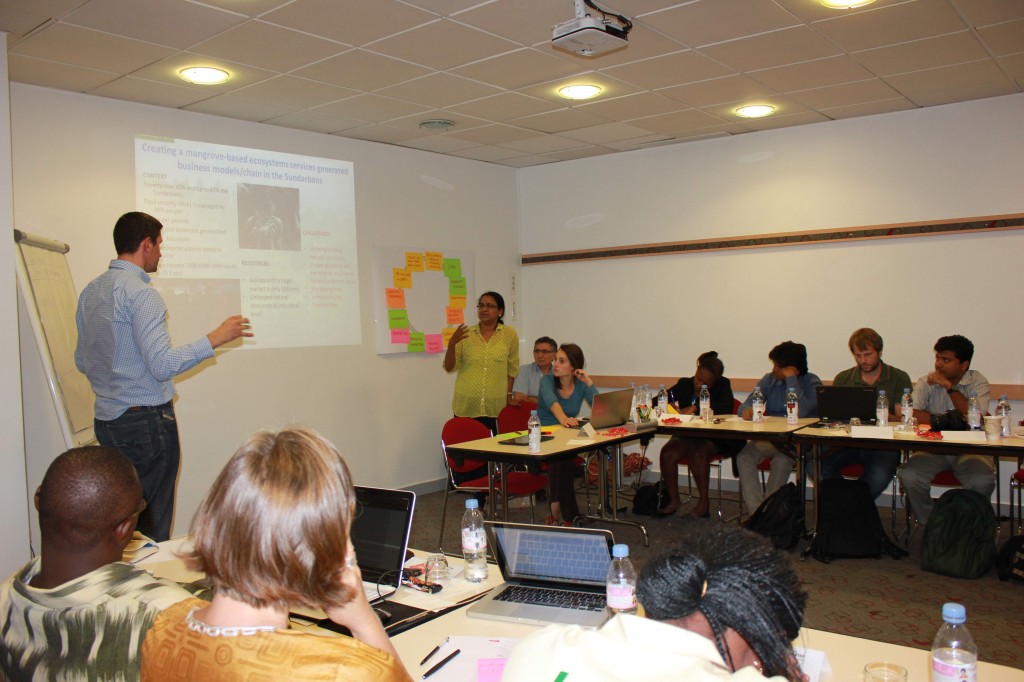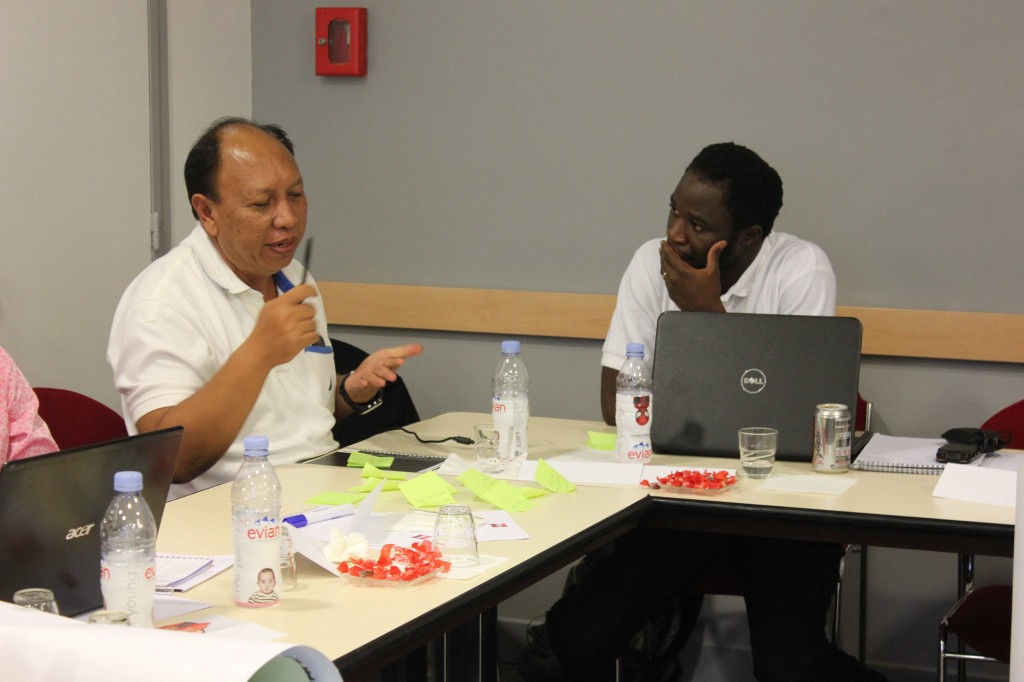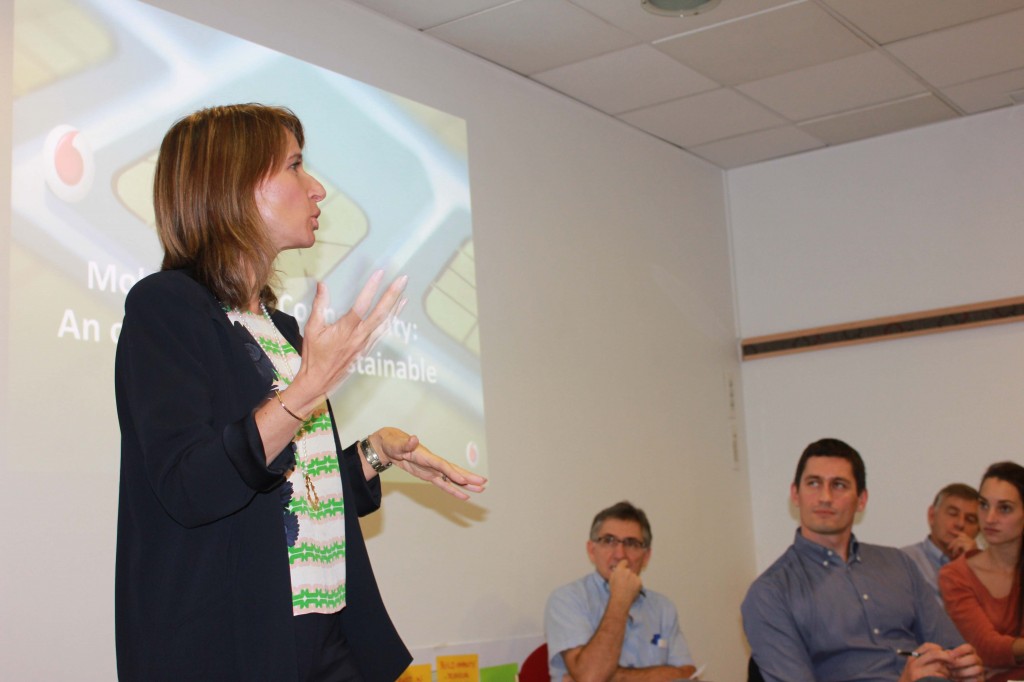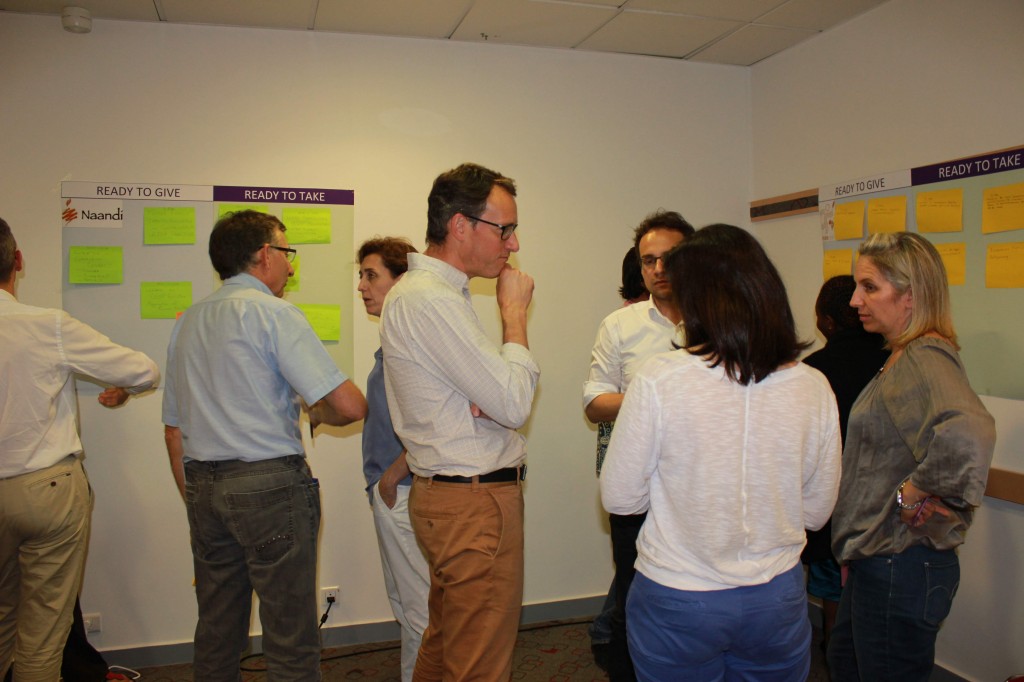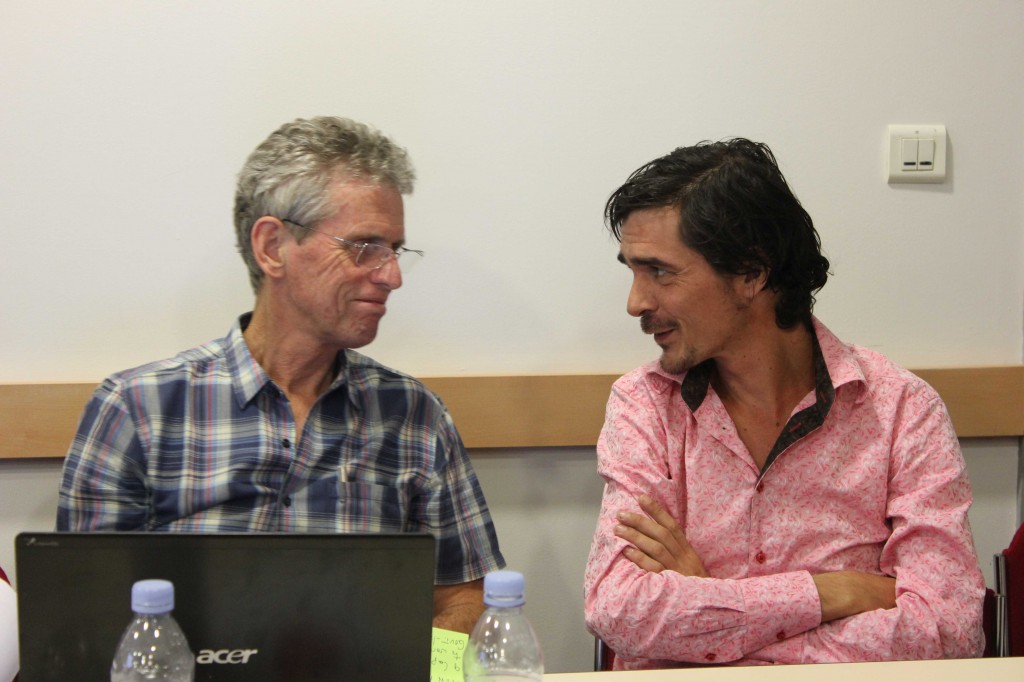In addition to Livelihoods’ annual event on July 8, a special workshop was organized on July 9-10 in Paris for the fund’s partner NGOs, with the participation of representatives of its partner investor companies and partner institutions, and external experts engaged in combating climate change and poverty.
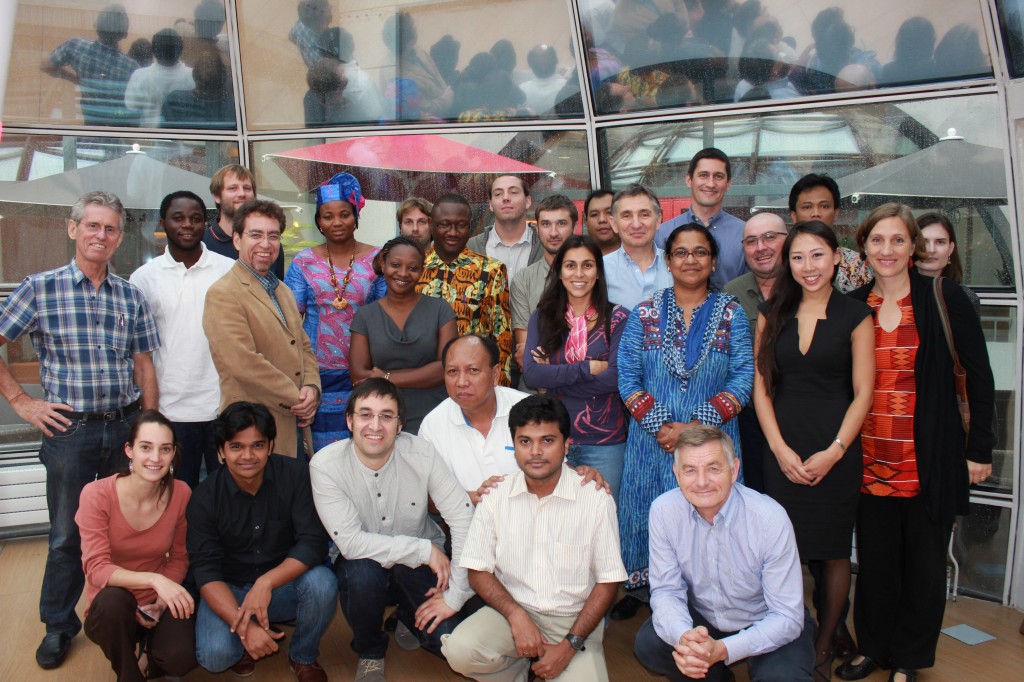
In joining the Livelihoods Fund, all partners gain access to the Livelihoods Network, a collaborative platform that facilitates the exchange and sharing of information and resources between the private sector, public institutions, NGOs, and experts. Through the Network, investors are able to contribute to Livelihoods projects in a concrete way, either operationally or technically, and thus play an active role in the fund. The aim of this workshop was to allow all actors of the Livelihoods Fund to innovate together on key common issues to strengthen the long-term sustainability of the projects and the project developers. The workshop inspired them to come up with efficient solutions to implement in the field in each of the 7 existing Livelihoods’ projects.
Livelihoods’ partner NGOs bond over tackling transversal topics
The workshop was structured around three transversal themes relevant to all of the fund’s NGO partner NGOs, regardless of whether they are involved in agroforestry, mangrove restoration or rural energy projects and regardless of the fact that they operate in geographical zones as diverse as India and Guatemala:
• Carbon Verification and Monitoring: Livelihoods’ projects are registered under existing CDM (Clean Development Mechanism) or VCS (Verified Carbon Standard) carbon methodologies. The fund uses the best social and environmental standards that exist such as the Gold Standard or CCBA. A rigorous process is followed to measure the carbon sequestration and register the projects at the United Nations Framework Convention on Climate Change (UNFCCC). This year, Livelihoods will receive its first carbon credits from its agroforestry project in India (implemented by the NGO Naandi Foundation), its mangrove restoration project in Senegal (implemented by the NGO Oceanium) and its clean cook stove project in Kenya (implemented by the social business Climate Pal). These NGOs shared their experience and offered each other tips. Additionally, carbon experts, such as Matthias Seebauer from the carbon consulting firm UNIQUE and Pablo Noriega from Agresta, were on hand to answer any questions the NGOs had.
• Revenue-generating activities: Certain NGOs have had remarkable experiences in launching income-generating businesses linked to Livelihoods’ projects. For instance, the NGO Yagasu in Indonesia is commercializing a large spectrum of products derived from mangrove trees planted in partnership with the Livelihoods Fund, such as mangrove cookies and natural batik dyes. Bambang Suprayogi, the founder and CEO of the NGO Yagasu, shared his learnings with the other NGOs and discussed how the fund’s partner investor Hermès is helping to further develop these dyes commercially.
• Information technologies: Various experts in this domain were invited to share with Livelihoods’ partner NGOs ways that mobile technology can help them more efficiently monitor their plantations and project activities as well as how to use them to increase access to market. Christelle Delbé, Group Head of Sustainability at Vodafone, gave a presentation to the NGOs about how mobile technology is facilitating access to market in rural off-grid areas in Africa thanks to a money credit storage system administered over mobile phones (such as its mobile money MPESA system via Safaricom in Kenya).
Co-creation between Livelihoods’ corporate investors & NGO partners
The Livelihoods Workshop went beyond just pedagogical learning sessions. It also invited representatives from Livelihoods’ 10 partner investors (Danone, Schneider Electric, Crédit Agricole S.A., Michelin, Hermès, SAP, CDC Climat, La Poste, Firmenich and Voyageurs du Monde) to exchanges with Livelihoods’ project officers first-hand and offer their financial, technical and operational support to the existing projects.
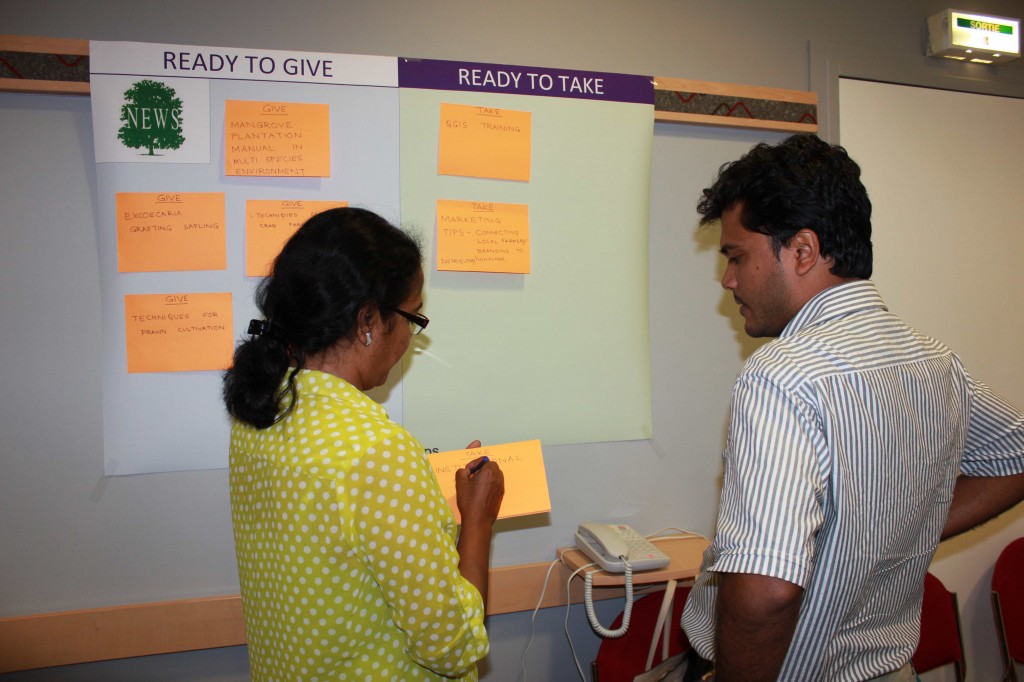
A special session titled “Message in a Bottle” was organized as a marketplace-like forum in which each of Livelihoods’ partner NGOs created a bulletin board with one side labelled “Ready to Give” and the other side labelled “Ready to Take.” Under the column “Ready to Give,” they listed their skills and expertise that they were willing to share with the rest of the Livelihoods’ community and under “Ready to Take” they listed their operational weaknesses and needs that they hoped other members of the Livelihoods’ community could help them fulfil. Joel Lelostec from Schneider Electric for instance, offered the NGOs advice concerning their rural energy needs, particularly in off-grid areas.
The Livelihoods Workshop was not only a great way for members of the Livelihoods family to get further acquainted following Livelihood’s soirée “Rendez-vous in the Garden” the previous evening, but more importantly, it demonstrated the unique strength of the Livelihoods network and the incredible reserve of talent and resources that the fund has at its disposal. The fund’s partner NGOs were ecstatic knowing that they are never alone in coming up with solutions to challenges that arise, but that they have the continuous support of the fund’s other NGOs and the fund’s partner investors who lend them their business savvy. Lastly, as the members of Livelihoods’ family are together for the long run, there is time to dream, innovate and implement solutions to fulfil the mission of the Livelihoods Fund – to restore natural ecosystems for the benefit of rural communities and to fight climate change.


